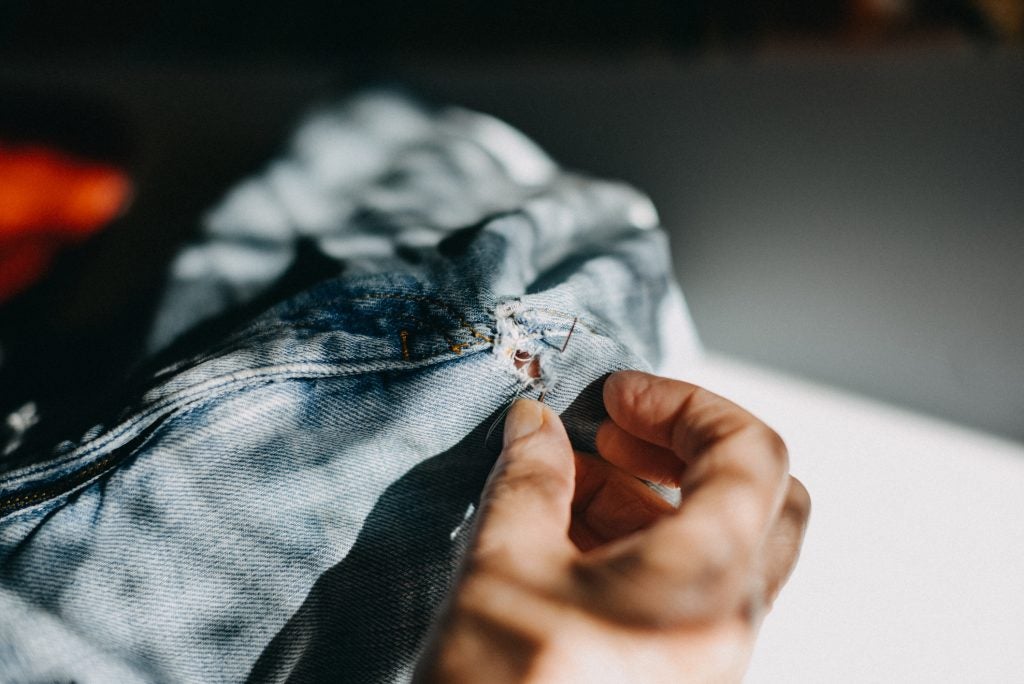Spinnova points out its technology presents a less resource-intensive way of making jeans without compromising the sturdy feel and aesthetic of denim.
Spinnova says the denim has "significantly" lower CO2 emissions and water consumption compared to conventional cotton production.
It explains that despite denim being a wardrobe staple, there are many sustainability challenges associated with denim production, such as water and resource intensity, heavy chemical use and dyeing, as well as limited recyclability when blended with materials such as polyester and elastane.
However, it argues Spinnova fibre is produced from certified eucalyptus pulp and has various environmental benefits such as 99% less water consumption and 74% fewer CO2 emissions compared to conventional cotton production.
Plus, the fibre spinning process is said to use zero harmful chemicals and thanks to the unique mechanical process, the fibre has a natural hand-feel.
In addition to this, the raw material used to make Spinnova fibre can be traced back to its origin.
Spinnova chief sustainability officer Shahriare Mahmood says: "We see a huge opportunity in changing the way that raw materials are sourced and treated for a product as iconic and timeless as denim. It’s exciting to see that we can already address many of the existing sustainability challenges with Spinnova’s technology, while upholding the quality associated with a good pair of jeans. Spinnova works together with partners in the denim segment to optimise the share of Spinnova in the fabric for the best use of the qualities of the fibre."
Spinnova presented the first blended denim fabrics made with wood-based Spinnova fibre at the annual Kingpins denim trade show organised in Amsterdam on 18 October.
The first fabrics and consumer products made with Spinnova fibre can be expected to enter the market within the next 12 months. The first denim pilot products were showcased at Kingpins show in Amsterdam on 18-19 October 2023.









